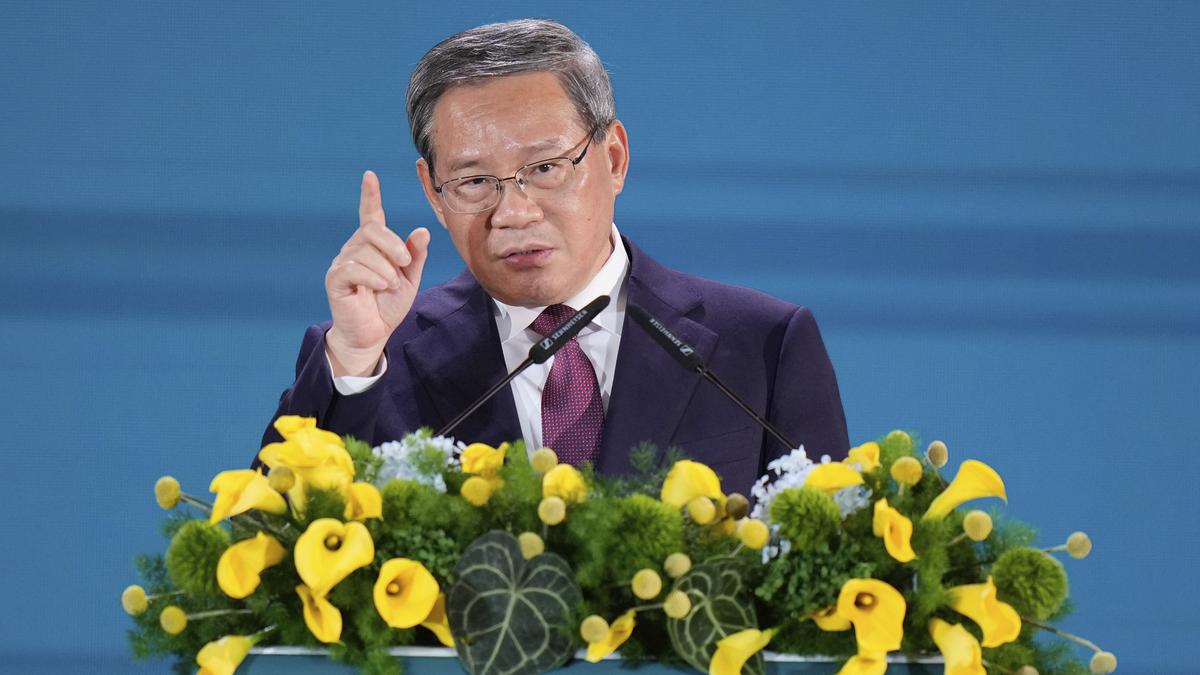Politics
China Declines Special Treatment in WTO Agreements, Promotes Reform

China has announced it will not seek new special and differential treatment in future World Trade Organization (WTO) agreements. This decision was reported by the official Xinhua news agency on September 23, 2025, following remarks made by Chinese Premier Li Qiang during a high-level meeting at the United Nations General Assembly.
During the meeting, Li emphasized that China, as the world’s second-largest economy, is acting as “a responsible major developing country.” The term “special and differential treatment” refers to provisions within WTO agreements that allow developing nations to benefit from favorable trading terms, including longer timeframes for implementing commitments and enhanced trading opportunities.
This announcement comes in the wake of ongoing debates regarding China’s classification as a developing country. Wealthier nations, particularly the United States, have contended that China should no longer be eligible for such treatment. Although classification is ultimately decided by the countries themselves, the pressure from affluent nations has raised questions about China’s status within the WTO framework.
In a significant response to Li Qiang‘s declaration, WTO Director-General Ngozi Okonjo-Iweala took to social media to highlight the implications of this shift. She stated, “According to Mr. Li, China will no longer have access to Special and Differential Treatment in new WTO Agreements.” Okonjo-Iweala praised this development as a “major news key to WTO reform,” noting that it marks “a culmination of many years of hard work.”
The WTO has long included mechanisms for special treatment to ensure that developing countries can participate more fully in global trade. Such provisions are designed to assist these nations in overcoming challenges they face in the international marketplace. However, the shifting dynamics of global trade have prompted calls for reform, with some nations advocating for a reevaluation of the criteria that determine a country’s classification.
As China steps away from seeking additional privileges, the broader implications for international trade remain to be seen. The decision may influence future negotiations within the WTO and reshape the landscape of global commerce, particularly as countries evaluate their policies concerning trade and development.
-

 World5 months ago
World5 months agoSBI Announces QIP Floor Price at ₹811.05 Per Share
-

 Lifestyle5 months ago
Lifestyle5 months agoCept Unveils ₹3.1 Crore Urban Mobility Plan for Sustainable Growth
-

 Science4 months ago
Science4 months agoNew Blood Group Discovered in South Indian Woman at Rotary Centre
-

 World5 months ago
World5 months agoTorrential Rains Cause Flash Flooding in New York and New Jersey
-

 Top Stories5 months ago
Top Stories5 months agoKonkani Cultural Organisation to Host Pearl Jubilee in Abu Dhabi
-

 Sports4 months ago
Sports4 months agoBroad Advocates for Bowling Change Ahead of Final Test Against India
-

 Science5 months ago
Science5 months agoNothing Headphone 1 Review: A Bold Contender in Audio Design
-

 Top Stories5 months ago
Top Stories5 months agoAir India Crash Investigation Highlights Boeing Fuel Switch Concerns
-

 Business5 months ago
Business5 months agoIndian Stock Market Rebounds: Sensex and Nifty Rise After Four-Day Decline
-

 Sports4 months ago
Sports4 months agoCristian Totti Retires at 19: Pressure of Fame Takes Toll
-

 Politics5 months ago
Politics5 months agoAbandoned Doberman Finds New Home After Journey to Prague
-

 Top Stories5 months ago
Top Stories5 months agoPatna Bank Manager Abhishek Varun Found Dead in Well









